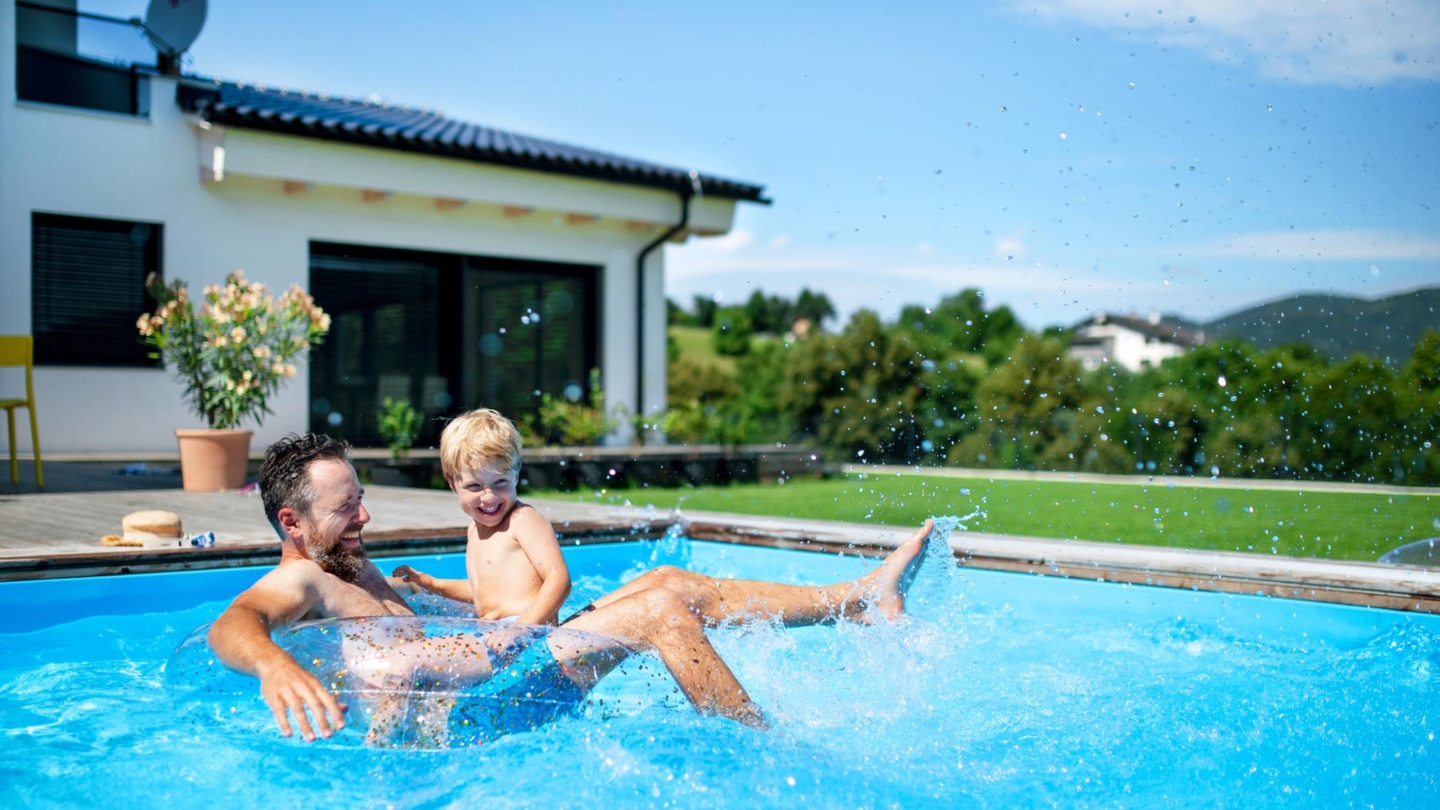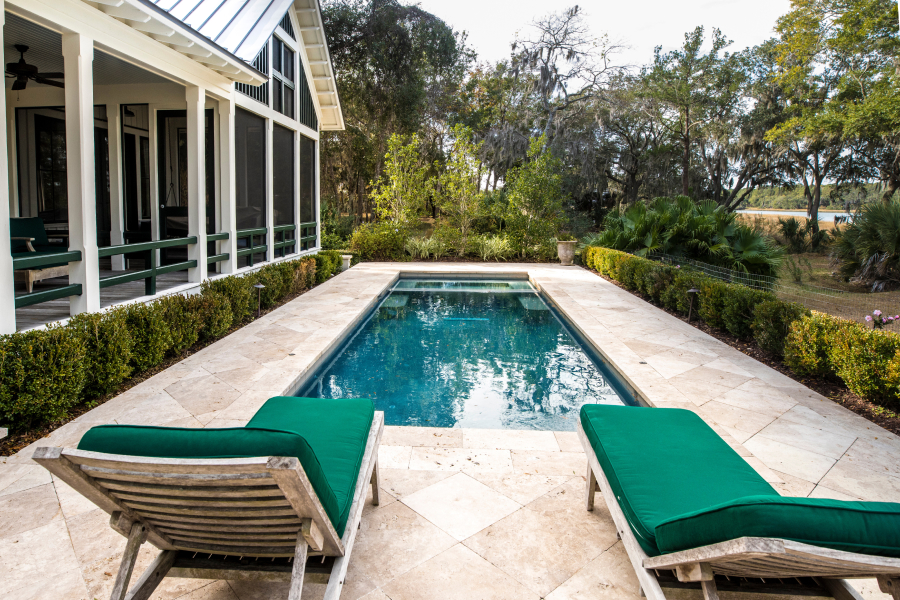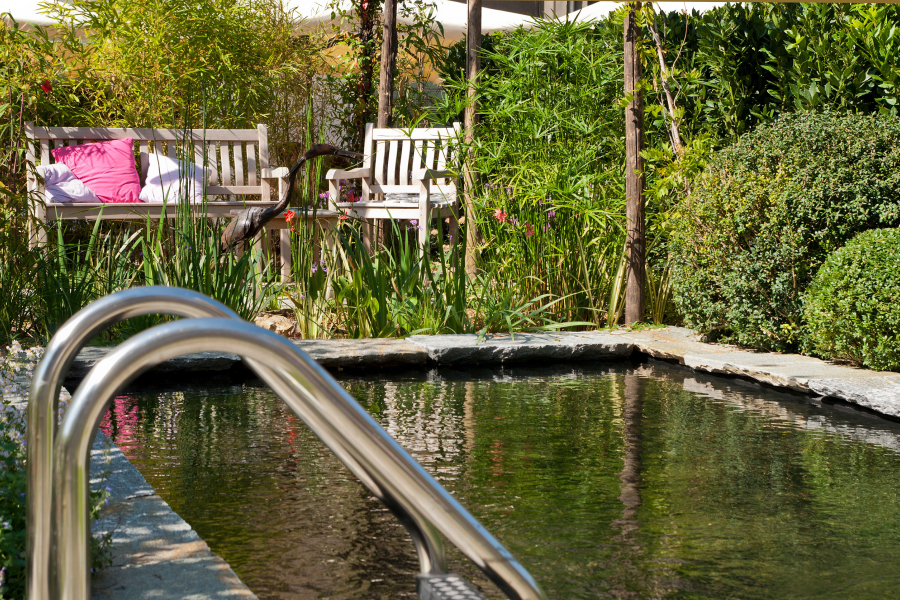5 Things to Know Before Taking the Plunge on a Pool
There’s a lot to love about owning a swimming pool, provided you have the money, time and attention to maintain one.


Written by Susan Kelleher on August 2, 2025
If you’re in love with swimming pools and the lifestyle that comes with them, you’ve probably been pouring over home listings with pools as summer gets into full swing.
Pools can be a great addition to a home, and even add value when you are selling. But they’re not for everyone. While some people consider them the ultimate luxury, others would just as soon run from the time, money and vigilance required to keep a pool clean and safe.
If you’re on the fence about buying a home with a pool — or if you're deciding whether adding one to your existing home is worth it — here are some things to consider:
1. A well-maintained pool can add value to a home
How much value does a pool add to a house? A previous Zillow® analysis found that homes with saltwater pools sell for 1.5% more than comparable homes without one — and they sell two days faster.
This means that if you’re shopping for a home with a saltwater pool, you might expect to pay more for it and see more competition from other buyers, according to the research. Whether that plays out will depend on a number of things, including the size of the pool and its age, condition and location on the property.
In some markets, especially those with warm climates, in-ground pools may add more value to the property than in colder climates where a pool would get only a few months use each year. Meanwhile, older pools, especially those requiring significant repairs or updates, can drag down the overall value of the property.
The type of material used — fiberglass, concrete or vinyl liner — can give you a broader range of prices to choose from. Tack on backyard landscaping, safety fencing and water features such as a slide, fountain or diving board, and you’re looking at a significant investment just to get the party started. According to Thumbtack, a fence over 250 feet long costs about $4,859 and backyard landscaping can cost about $1,087.

2. Utilities and maintenance add to the cost of owning a pool
Once the pool’s in place, the costs to maintain it can be counted in dollars and time.
Pools require regular cleaning, chemical treatments and vigilance around safety — things that require your time and attention. You can certainly hire someone to maintain your pool and winterize it if you live in a colder climate. According to Thumbtack, the cost of hired maintenance for an inground pool is about $148 a month. If you’re on a budget, prepare to carve out time to do it yourself.
Other costs to consider:
- Utility bills. Pool pumps, filters and heaters run on electricity, so unless you’re using solar power, prepare for higher electric bills. You’ll also see a bump in your water bill.
- Homeowner’s insurance. Pools can raise the cost of insurance, and you may have to buy additional liability coverage.
- Repair costs. Like any piece of equipment, pool components such as pumps, filters, heaters, even liners, can break down or deteriorate over time.
- Education. It may take some time before you get the hang of managing the pool’s chemistry.
What all that time and work gets you, of course, is the luxury of walking out your door and jumping into the pool, keeping the kids splashing for hours or lounging poolside with friends for a barbecue.
3. Pools can be made more sustainable
When it comes to pool construction, choosing eco-friendly materials and practices can also make a difference. Installing LED lights in and around the pool can also reduce energy usage and extend their lifespan. Maintaining equipment so that it operates at peak efficiency can make them more environmentally friendly and reduce their impact.

4. Pool safety requires vigilance
It bears mentioning that safety is something you’re going to have to keep in mind and plan for at all times when the pool is in use — and even when it’s not. For all the awesome fun and relaxation pools can provide, there’s the obvious danger of drowning, especially for children and pets.
You’ll need to exercise vigilance by monitoring children when they’re near the pool, and adults and children when they’re in it. You also need to install a fence or some kind of barrier and a pool cover to control access to the water, and eliminate features such as diving boards that can add to the risk of injury. It’s also an excellent idea to learn CPR and first aid if you don’t already possess that knowledge.
5. You can pay for a pool several ways
When considering whether a pool is worth it, know you can pay for your pool any number of ways, or a combination of them. The options include:
Cash-out refinance: A cash-out refinance replaces your existing home loan with a new, larger loan. This option makes sense if the difference in the interest rates between your old loan and your new one isn’t significant, as you will be refinancing the entire amount of the home, not just the amount you need to pay for the pool.
Home equity loan: A home equity loan is a loan you take out against the equity you already have in your home. It gives you fast access to cash, with a predictable, long-term repayment schedule.
Home equity line of credit (HELOC): A HELOC is a revolving line of credit that is secured by your home.
Personal loan: With a personal loan, you borrow a lump sum upfront and pay it back in fixed amounts over time. Typically, these loans come with higher interest rates than loans secured by your home.
Credit card. This is the most expensive option unless you can take advantage of timing and rates offered by a lender. If you have good credit, you can apply for a card offering a zero or low interest rate for the initial period, and/or one that allows you to delay payment for up to two years at a zero or low interest rate. If you have the income, you could pay off the balance before the regular interest rate kicks in. Note, however, that if you think you’ll have a large balance by the end of the introductory period, this option could cost you a ton.
Still on the fence?
If you're still asking, 'Is a pool worth it?,' you might consider a test run by starting with an above-ground pool to see how much use you get out of it. You need only check online for resale pool posts in the summer to see how quickly kids’ interest can shift as they grow.
A local agent can help you stay competitive on a budget.
They’ll help you get an edge without stretching your finances.
Talk with a local agent


